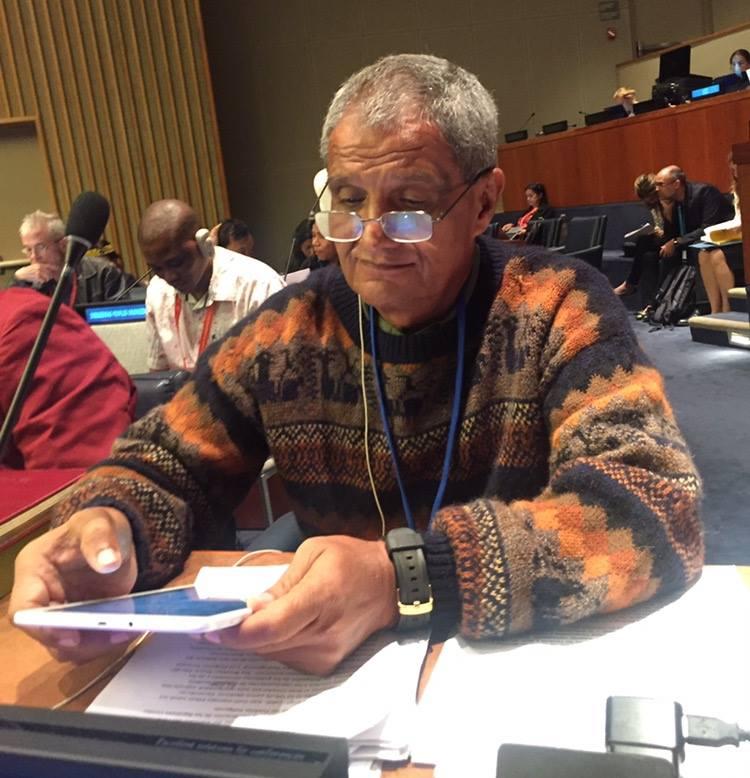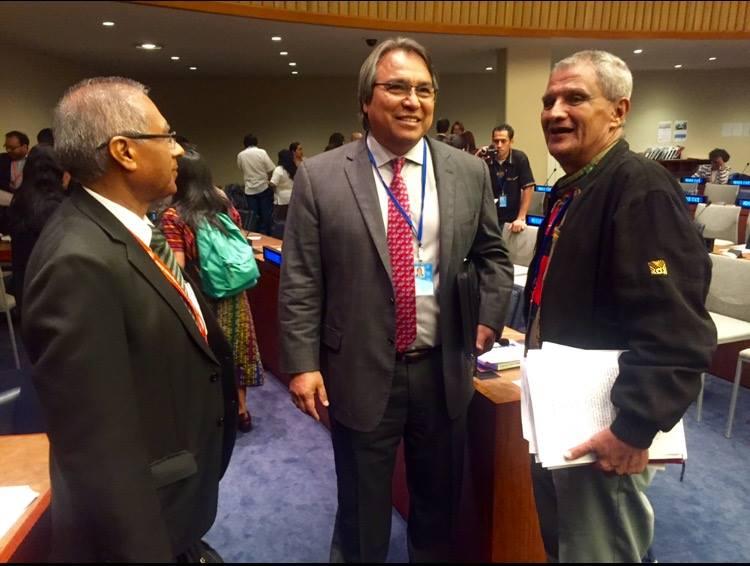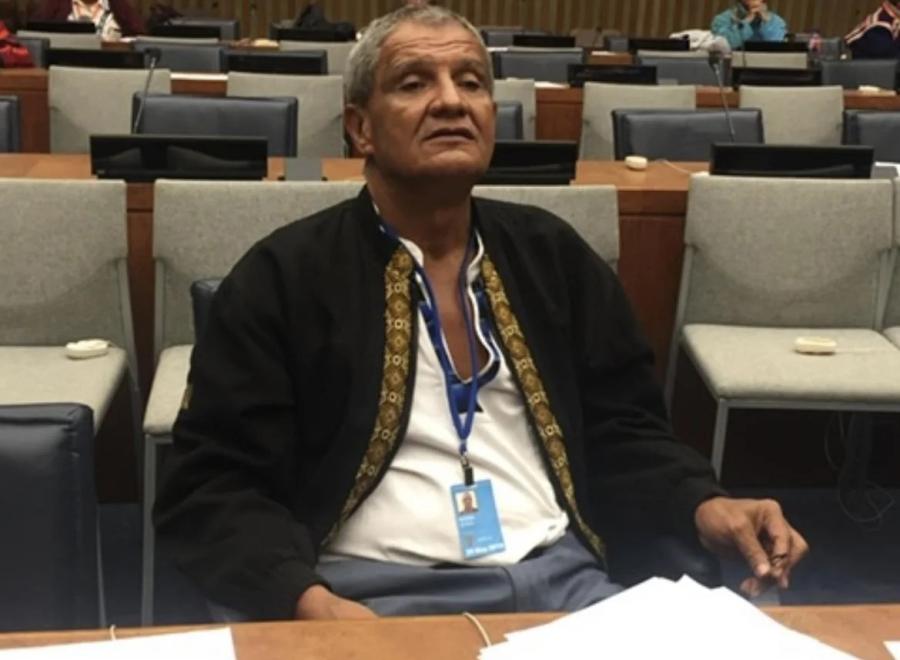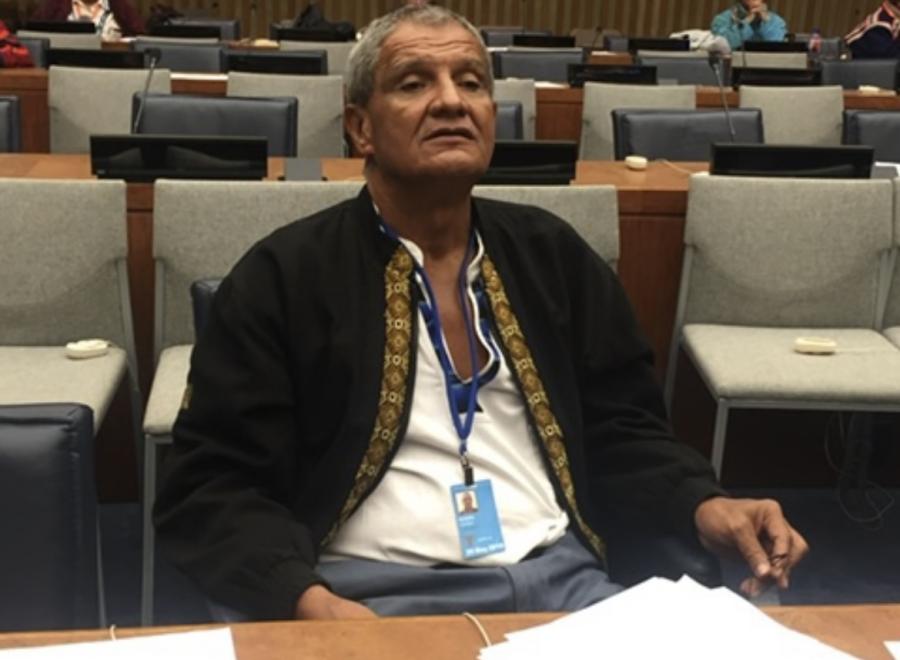


By Laura Hobson Herlihy
The Miskitu people (pop. 185,000) live in Muskitia, a rainforest region that stretches along the Central American Caribbean coast from Black River, Honduras to just south of Bluefields, Nicaragua. Two-thirds of Muskitia and the Miskitu people reside in Nicaragua. The Miskitu people in Nicaragua today are in a crisis situation. Armed mestizo colonists are attacking their communities, pillaging and confiscating their rainforest lands. This article is a cry for help.
The Miskitu people have legal ownership of their lands guaranteed by Nicaraguan Law 445, the ILO Convention 169, and the UN Declaration on the Rights of Indigenous People. Yet, mestizo colonists (called, colonos) from the interior and Pacific coast have invaded, and now illegally occupy, nearly half of their lands. In September 2015, violence over land conflicts erupted in the Miskitu territories of Wangki Twi-Tasba Raya and Li Aubra. These territories are located near the Coco or Wangki River, the international border between Nicaragua and Honduras.
Since September, mestizo colonists with automatic weapons have killed, injured, and kidnapped more than 80 Miskitu men with impunity. In fear for their lives, between 1-2,000 Miskitu refugees have fled to Waspam and Puerto Cabezas-Bilwi and Honduran border communities. The refugees--mainly women, children, and elders--are suffering from starvation and lack medical supplies. Children have not attended school for six months. Meanwhile, periodic attacks continue on Miskitu communities in Wangki Twi-Tasba Raya.
Much of the violence now occurring revolves around article 59 of the Communal Property Law (law 445). Article 59 requires the Nicaraguan state to complete saneamiento, the cleansing or the removal of colonists and industries from Indigenous and Afro-descendant territories. The current Nicaraguan government publically agreed to saneamiento but has not responded. Similarly, the government still has not provided protection to the Miskitu communities under attack or assistance to the refugees. As a result of the government’s delayed reaction to the crisis, the Miskitu people now suspect the Sandinista (FSLN) state to be complicit with the colonists’ invasion of their Indigenous territories.
In a separate but related issue, the FSLN government passed the Canal Law (Act 840) that approved the Chinese-backed (HKND) inter-oceanic canal to cut through the ancestral homeland of the Indigenous and Afro-descendant peoples along the Nicaraguan Caribbean coast. Tensions are rising over Indigenous territoriality and land rights, especially between the Miskitu people and President Daniel Ortega’s Sandinista government. The tense situation over land rights today bares eerie similarities to the war-torn years of the 1980s in Nicaragua, when Ortega first served as President (1985-1990) and the Miskitu fought as counter-revolutionary warriors in the Contra war within the Sandinista revolution (1979-1990).
As a US anthropologist who has worked for over twenty years with the Honduran and Nicaraguan Miskitu people, I had the opportunity to attend the 2016 United Nations Permanent Forum on Indigenous Issues (May 9-20). On Thursday, May 12, I recorded Miskitu leader Brooklyn Rivera’s intervention in the session, “Dialogue with Indigenous Peoples.” Rivera has served as the Líder Máximo (literally, Highest Leader) of the Nicaraguan Miskitu people for over 30 years; after rising to power as a military leader in the revolution and war, Rivera in 1987 founded and became the long-term director of the Indigenous organization Yatama (Yapti Tasba Masraka Nanih Aslatakanka/Sons of Mother Earth). Special thanks to Costa Rican anthropologist Fernando Montero (ABD, Columbia) for transcribing Rivera’s United Nations intervention in Spanish and translating it to the English below.
English Version
My name is Brooklyn Rivera. I am both a son and the highest leader of the Miskitu people of the Nicaraguan Muskitia. As we know, the rights of Indigenous peoples are essentially human rights. According to Article 1 of the UN Declaration on the Rights of Indigenous Peoples, Indigenous people have the right, both as peoples and as individuals, to the full enjoyment of their human rights and fundamental liberties. In my country of Nicaragua, the rights of Indigenous people have suffered severe setbacks in the last several years. Indeed, the current Sandinista government--contrary to its rhetoric in international forums and in flagrant violation of the rights of Indigenous peoples--freely acts against Indigenous peoples, advancing a consistent policy of aggression and internal colonialism.
Consider the following within the specific sphere of Indigenous peoples’ rights: the government imposes violence against our communities by means of settlers who invade ancestral territories, carrying out armed attacks, murders, kidnappings, rape, and displacement, producing refugees, most of whom are women, children, and people of old age. All this occurs in the face of governmental and institutional passivity, even complicity. Moreover, the Nicaraguan government is currently implementing a policy of militarization in our communities and fishing territories, committing murders such as that of our brother and leader Mario Lehman last September. In like manner, the government is overtly trampling on our communities’ right to ancestral autonomy by interfering with the election of their leaders according to their own practices and customs, devoting itself to destroying the structure and traditional procedures of our communities with the aim of replacing them with the so-called Sandinista Leadership Committees, part of their party structure. In this way they create and impose a spurious and noxious structure parallel to Indigenous authorities. You will understand that, by applying this policy, the government and the ruling party are fomenting division within families and communities, destroying their social fabric, cultural values and [imposing] heightened suffering and poverty. In addition, in open violation of the right to work, the Sandinista government denies jobs and government positions to Indigenous professionals and technicians, demanding that they become members of their party before considering them for these positions.
With regard to the sphere of the environment of our peoples in Nicaragua, I must first point out the dispossession of lands and territories suffered by Miskitu communities perpetrated by cattle ranchers, mining companies, and wealthy sectors linked to the government and the ruling party, who use settlers as spearheads. In this invasion, armed settlers arrive in our lands, advance the agricultural frontier, occupy extensions of territory, and destroy the habitats and ecosystems of Indigenous peoples, preying on their fauna, flora, and marine ecology. Needless to say, this extractivist policy involves the looting of ancestral communal resources such as forests, flora, mineral resources, water resources, and land itself with the illegal land sales in which settlers participate. I must also mention the promotion of megaprojects such as the interoceanic canal and the Tumarin hydroelectric dam in Awaltara, both of which violate Indigenous peoples’ right to prior, free, and informed consent. These megaprojects render entire communities vulnerable to disappearing along with their culture and language. This is the case of the Rama people, a small, vulnerable people in danger of extinction who reside in the Southern Moskitia. In the face of this crude reality and despite its demonstrated lack of political will and its disrespect for international laws and institutions—not to mention my own arbitrary, illegal expulsion from the National Parliament—once again we demand from the Nicaraguan government:
1. The immediate application of the recommendations issued last December by the UN Special Rapporteur on the Rights of Indigenous Peoples, in reference to the cleansing [“saneamiento”] of Indigenous territories and the protection of our communities in the face of settler invasion;
2. The immediate enactment of the precautionary measures suggested by the OAS’ Human Rights Commission on behalf of the Indigenous communities in the regions of Tasba Raya and Wangki Li Auhbra (location in the municipality of Waspam), approved in October 2015 and expanded in January 2016;
3. The immediate launch of a process of genuine dialogue and negotiation with Indigenous peoples via their organizations and leaders to reach real solutions based on respect for Indigenous peoples and the recognition of their dignity, as outlined in existing frameworks;
4. Finally, the immediate restitution of the undersigned as legislator, in accordance with his status as a popularly elected official put in power thanks to the votes of Indigenous peoples, whose constitutional and legal rights were violated with my arbitrary and illegal expulsion from Parliament.
I end my intervention by asking all participants, especially the Indigenous peoples in this forum, to engage in active solidarity with the Indigenous peoples of Nicaragua and their organizations as they resist and demand dignity, rights, and justice from the Sandinista government in Nicaragua.
Thank you, Mr. President.
En Espanol
Soy Brooklyn Rivera, hijo del pueblo mískitu de la Mosquitia nicaragüense y su dirigente principal. Como sabemos, los derechos de los pueblos indígenas son esencialmente derechos humanos. Como se establece en el artículo 1 de la Declaración de la ONU sobre los Pueblos Indígenas, los indígenas tienen derecho como pueblos o como individuos al disfrute pleno de todos sus derechos humanos y las libertades fundamentales. El país de donde vengo yo, Nicaragua, en los últimos años ha experimentado un grave retroceso en el ejercicio de los derechos de nuestros pueblos indígenas, recogido en el marco legal interno y externo del país. En efecto, el actual gobierno sandinista, contrario a su retórica en los foros internacionales y en abierta violación de los derechos de los pueblos indígenas reconocidos en la Constitución Política y en las demás leyes y los instrumentos internacionales suscritos, se dedica a actuar libremente en su contra impulsando toda una política de agresión y colonialismo interno.
Veamos: en el ámbito específico de los derechos humanos de nuestros pueblos indígenas, a través de los colonos invasores de los territorios ancestrales, impone una situación de violencia en contra de nuestras comunidades mediante ataques armados, cometiendo asesinatos, secuestros, violaciones y desplazamentos, produciendo refugiados, mayormente niños, mujeres y ancianos. Todo esto ocurre ante la pasividad y aun la complicidad del gobierno y sus instituciones. Más aún, el gobierno nicaragüense implementa una política de militarización de las comunidades y las áreas de pesca, en las que cometen asesinatos como en el caso del crimen del hermano dirigente Mario Lehman ocurrido en el mes de septiembre pasado. De la misma forma, el gobierno aplica un abierto atropello al derecho de autonomía ancestral de nuestras comunidades en la elección de sus autoridades basada en los usos y costumbres, cuando a través de sus turbas partidarias y con el acompañamiento de sus policías y hasta de militares, aún así sin el mínimo respeto a las leyes y formas organizativas propias, se empecina en destruir la estructura y los procedimientos tradicionales de nuestras comunidades con el fin de sustituirlos con los llamados Comités de Liderazgo Sandinista, una estructura de su partido en el poder, creando e imponiendo así una estructura espuria y nociva, paralela a las autoridades indígenas. Como comprenderán, aplicando esta política el gobierno y su partido crean división entre las familias y comunidades, destruyendo sus tejidos sociales, valores culturales y mayor sufrimiento y pobreza. Además, el gobierno sandinista en abierta discriminación al derecho al trabajo, niega a los profesionales y técnicos de los pueblos indígenas el derecho al trabajo cuando exige que debe convertir a ser miembro de su partido para ocupar cargos o empleo en el país.
En relación al ámbito del medio ambiente de nuestros pueblos en Nicaragua, debo iniciar señalando el despojo de las tierras y territorios que sufren las comunidades en la Mosquitia de parte de los terratenientes ganaderos, empresas mineras y grupos adinerados vinculados al gobierno y a su partido, utilizando a los colonos como punta de lanza. En la invasión, los colonos armados llegan a nuestras tierras, aplican un avance agropecuario, ocupan extensiones de territorio y destruyen los hábitats y los ecosistemas de los pueblos indígenas, cometiendo depredaciones ambientales en su fauna, flora y entorno marino. Lógicamente, con esta política extractivista pasa por el saqueo de los bienes comunales ancestrales tales como los bosques, la flora, los recursos mineros, los recursos hídricos y la misma tierra con el tráfico ilegal de parte de los colonos. También aquí debo mencionar el impulso de los megaproyectos tales como el canal interocéanico y el hidroeléctrico Tumarín en Awaltara, en ambos casos violentando el derecho al consentimiento previo, libre e informado de los pueblos, impulsan sus megaproyectos en los que exponen la desaparición de comunidades enteras junto con su cultura y su idioma. Tal es el caso del pueblo Rama, pueblo pequeño, vulnerable y en proceso de extinción, ubicado en la Mosquitia Sur. Ante esta cruda realidad y a pesar de su falta de voluntad política demostrada y de su irrespeto a las leyes y las instituciones internacionales, así como de mi expulsión arbitrario e ilegal del Parlamento Nacional, como un esfuerzo de solución al conflicto impuesto, una vez más exigimos al gobierno nicaragüense:
- La inmediata aplicación de las recomendaciones de la Relatora Especial de las Naciones Unidas sobre los Derechos de los Pueblos Indígenas, emitidas en el mes de diciembre pasado, referentes al cumplimiento de la etapa de saneamiento de los territorios y de la protección de nuestras comunidades ante la invasión de los colonos;
- El inmediato cumplimiento de las medidas cautelares presentadas de parte de la Comisión de Derechos Humanos de la OEA a favor de las comunidades indígenas de la zona de Tasba Raya y de Wangki Li Auhbra en el municipio de Waspam, y abrobadas en el mes de octubre 2015 y ampliadas en enero de 2016;
- La inmediata apertura de un proceso genuino de diálogo y negociaciones con los pueblos indígenas a través de sus organizaciones y líderes que conduzcan a unas soluciones reales basadas en el respeto y el reconocimiento de la dignidad y los derechos de nuestros pueblos reconocidos en las normativas;
- Finalmente, la restitución inmediata del suscrito como legislador electo popularmente con los votos de sus pueblos indígenas, violentando mis derechos constitucionales y legales con el despojo arbitrario e ilegal cometido durante mi expulsión del Parlamento.
Termino mi intervención requiriendo a todas y todos los participantes, mayormente a los pueblos indígenas de este foro, una solidaridad activa con los pueblos indígenas y sus organizaciones en Nicaragua en el marco de su resistencia y demanda de dignidad, derecho y justicia ante el gobierno sandinista en Nicaragua.
Gracias, Presidente.



